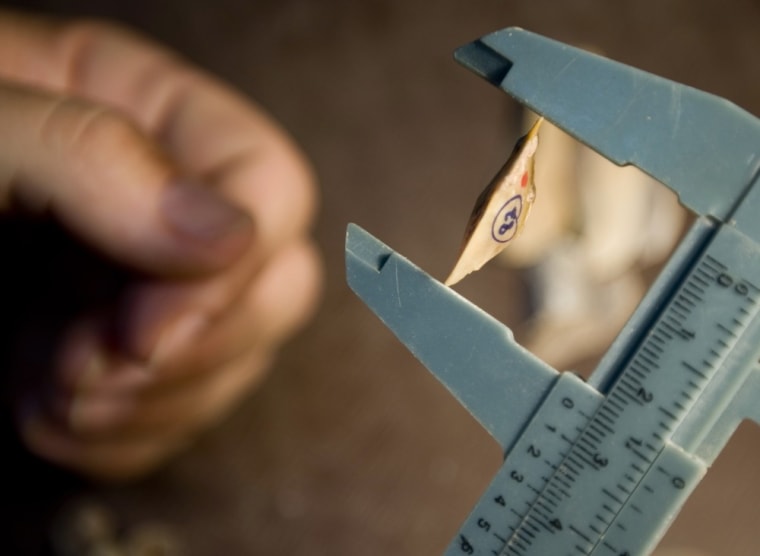Israeli archaeologists believe thousands of ancient shards of flint found scattered around a fire pit in a cave near Tel Aviv might be the world's oldest known disposable knives.
Dating to the Stone Age, the tiny knives are believed to be at least 200,000 years old. A Tel Aviv University excavation team found the tools around a fireplace littered with charred animal bones.
Archaeologist Ran Barkai said he believes Stone Age hunter-gatherers used the rough, round-shaped cutlery — ranging from the size of human teeth to guitar picks — for slicing through cooked meat because they were found next to the animal bones. The bones were used to determine the age of the knives.
The number of knives found, coupled with the fact that they had no signs of sharpening, indicates they were disposable because they would have dulled after several uses, he said.
The knives were made from recycled material — parts of larger knives and tools designed for other uses such as butchering animals and scraping hides, he said.
"They are made in a special way. On the one hand, they are very efficient and on the other, very simple," Barkai said.
Working with replicas made from other stones found in the cave, an expert determined that the wear and tear resulting from cutting soft tissues, like meat, matched marks found on the ancient knives.
Barkai said that while people have been cutting meat for the last 2 million years, these knives stood out because of their small size and the fact that they were disposable and made from recycled materials.
"Such tiny meat-eating knives were never discovered before," he said.
Yorke Rowan, an archaeologist from the University of Chicago who was not involved in the dig, said the discovery still leaves a number of questions unanswered, such as why the tools are so small and why the makers would have bothered to recycle materials when they had access to a large supply of flint stones.
But the finding is significant, he said, because it shows that materials "that have traditionally been treated as waste might actually be tools."
Barkai published the findings in the September issue of Antiquity, a quarterly journal.
